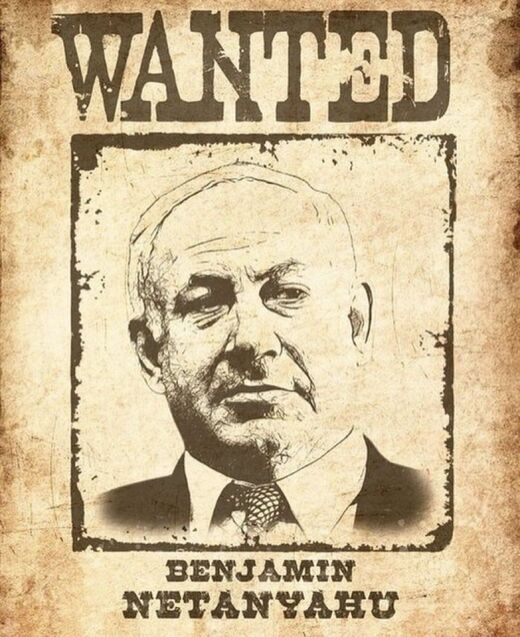In the hours following news of the murder of the Russian ambassador to Turkey, Russian President Vladimir Putin convened an urgent meeting of his top foreign policy and intelligence advisers.
The meeting took place yesterday Monday 19th December 2016 in the Kremlin, and brought together President Putin, Russian Foreign Minister Lavrov, Sergey Naryshkin, who is the head of Russia's principal intelligence agency, the SVR ("Foreign Intelligence Service") and Alexander Bortnikov, who is the head of Russia's principal counter-intelligence and security agency, the FSB ("Federal Security Service").
The Kremlin's summary of the meeting gives a sense of what Russia's response to the ambassador's murder will be. Here is what it reports President Putin telling the meeting
This crime is undeniably a provocation aimed at derailing the normalisation of Russian-Turkish relations and the peace process in Syria, which is actively promoted by Russia, Turkey, Iran and other countries interested in the settlement of the internal conflict in Syria.These comments highlight the difference between the way the Russians deal with these sort of terrorist outrages and the way certain Western countries - notably the US and Israel - do.
There can be only one response - stepping up the fight against terrorism - which the criminals will find out firsthand.
Russia's Investigative Committee has already opened a case on the murder, and has been tasked with forming a working group which will promptly leave for Ankara to take part in the investigation of this crime together with Turkish partners. This was just agreed during a telephone conversation with the President of Turkey. We must find out who directed the killer's hand.
Security must be tightened at Turkish diplomatic missions in Russia, the embassy, and other missions, and the Turkish side should provide assurances on security at Russian diplomatic offices in accordance with Vienna Convention on Diplomatic Relations.
The classic Western response to a murder of this sort would be military action. Thus in 1982 Israel used a murder attempt on Shlomo Argov, Israel's ambassador to Britain, as the pretext for launching an invasion of Lebanon, which was intended to destroy the PLO there. In 1986 the US responded to the killing of two US servicemen as a result of a bombing of the La Belle discotheque in West Berlin, by bombing Libya. In 2001 the US responded to the 9/11 terrorist attacks by invading Afghanistan. In November 2015 France responded to the Paris terrorist attacks by bombing Raqqa.
The Russian way is very different. Firstly, the Russians treat attacks of this sort as a "provocation" (note President Putin's careful use of the word) intended to derail their pursuit of their objectives ("the normalisation of Russian-Turkish relations and the peace process in Syria"). Since they identify the attack as a "provocation", they are careful not to be provoked by it into doing what they believe the terrorists wants them to do.
The result is that a military response is ruled out. Strikingly, President Putin's response to the attack was not to call together Sergey Shoigu, Russia's Defence Minister, and Russia's military chiefs. It was to call together Sergey Lavrov, Russia's Foreign Minister, and Russia's intelligence and security chiefs.
Instead of identifying the attack as an act of war (which by the way is what legally speaking an attack on an ambassador actually is) President Putin calls it a "crime". Rather than blaming the Turks for allowing it to happen, and threatening them with all sorts of dire consequences unless they immediately catch the perpetrators, President Putin calls for setting a "working group" to be set up to work alongside the Turkish authorities in order to identify and track down the perpetrators. In this way Turkey's sovereignty - and Turkey's pride - is respected.
Of course it is not all limited to that. As well as these steps Putin, was careful to call on his security chiefs to tighten security for Russian diplomats (and no doubt their families) in Turkey.
In addition, though Putin's comments imply that the investigation is being undertaken by Russia's Investigative Committee - a police and law enforcement agency roughly analogous to the US FBI - in reality the fact that he meet with his senior intelligence and security chiefs - Naryshkin and Bortnikov - shows that in reality it is Russia's intelligence and security agencies - the SVR and the FSB - who are being given the task of tracking down whoever ordered the murder. It is their investigation rather than that of the Investigative Committee which will be the real one.
There remains a strong possibility that the murder was the work of a single individual - the person who carried out - and that he was acting alone.
Should it however turn out that the murder was the result of a conspiracy and that others were involved, there should be no doubt about the severity of Russia's reaction.
In 2005 Russia enacted a controversial law which authorises Russia's President to order Russia's intelligence and security agencies to carry out extra-judicial killings of individuals located abroad whom Russia considers terrorists or "extremists", and who the President deems pose a threat to Russia, with the sole proviso that the President must inform Russia's Federation Council (the upper house of Russia's parliament) of this order within five days.
It is possible - indeed it is highly likely - that President Putin either gave precisely such an order to Naryshkin and Bortnikov during his meeting on Monday or - more probably - that he told them he would do so as soon as those behind the murder of the ambassador were identified.
Nonetheless, the contrast between the Russian response to the ambassador's murder and the typical Western response is striking. The Russians always subordinate their actions to achieving their objectives, which they always pursue with calculation and single-mindedness, and their response to the ambassador's murder is no exception. In situations of this sort, where the Western powers - and the US and the Israelis especially - use a cudgel, the Russians use a scalpel.




From: [Link]
========
[...]
As one reviews this surreal scene, one wonders: How was this even allowed to happen? How come this 22-year-old, off-duty cop, who is part of the riot squad, was the only person standing behind Karlov this entire time? Reports are now saying that the gunman refused security check.
“The off-duty police officer who assassinated Russia’s ambassador to Turkey refused to go through an X-ray security check before the shooting — but was let into the event anyway, according to a report.
The Hurriyet Daily News reported Tuesday that the assassin, Mevlüt Mert Altintas, simply flashed his police ID to enter Ankara’s Contemporary Arts Center — where Russian Ambassador Andrey Karlov was scheduled to speak at a photo exhibition.”
– Daily News, Assassin of Turkey’s Russian ambassador refused security check before ambushing event
Also, all signs point to the attack being ordered from above, Mert Altintas being the proverbial patsy.
“It had been determined Tuesday if Altintas, 22, was part of a wider plan to take out the Russian ambassador. But a senior Turkish official told the Associated Press Altintas likely did not act alone. The official, speaking anonymously, called the killing “fully professional, not a one-man action.”
– Ibid.
Turkish authorities suspect that Altintas was under the influence of Fetullah Gulen, a Turkish preacher who is currently based in the United States, in Pennsylvania. He is suspected of being a CIA operative conducting operations meant to destabilize Erdogan’s government.
Although some draw comparisons between this event and the assassination that lead to WWI, it is unlikely that the killing will cause significant change. It will most likely justify the Russian-Turkish involvement in Syria.
[...]
==========